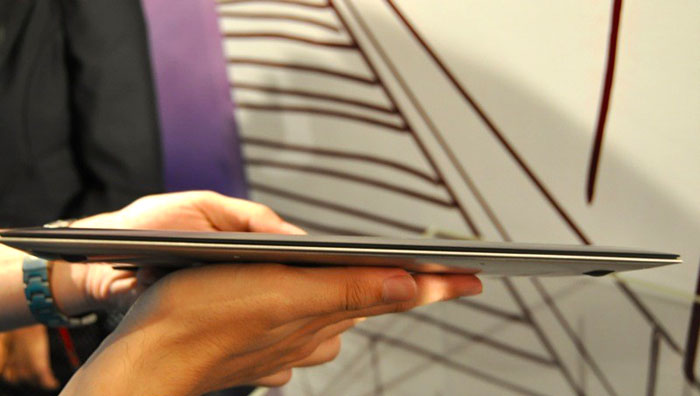Is alkaline water better for you than plain water?
Answer
from Katherine Zeratsky, R.D., L.D.
For most people, plain water is best.
Alkaline water has a higher pH level than does tap water. Some proponents say that alkaline water can neutralize acid in your bloodstream, boost your energy level and metabolism, and help your body absorb nutrients more effectively. Others say that alkaline water can help you resist disease and slow the aging process. However, researchers haven't verified these claims.
Some research does suggest that alkaline water may slow bone loss, but further study is needed to determine if the positive effects can be maintained over the long term or influence bone mineral density overall.
Question
Water softeners: How much sodium do they add?
I'm on a low-sodium diet, so I'm looking for ways to reduce my sodium intake. How much sodium does a water softener add to our tap water?
Answer
from Sheldon G. Sheps, M.D.
The amount of sodium a water softener adds to tap water depends on the "hardness" of your water. Hard water contains large amounts of calcium and magnesium — dissolved from the soil by rainwater. Some water-softening systems remove calcium and magnesium ions from hard water and replace them with sodium ions. The higher the concentration of calcium and magnesium, the more sodium needed to soften the water. Still, the amount of sodium in softened water that was originally very hard shouldn't be cause for concern.
The majority of sodium in the average diet comes from table salt and processed foods. The water from your tap may add a small amount of sodium to your diet, depending on the type of softener you use, but not a significant amount. As a general rule, an 8-ounce (236 milliliters) glass of softened tap water contains less than 12.5 milligrams of sodium. According to the Food and Drug Administration nutrient guidelines, this is in the very low-sodium range. The best way to decrease the sodium in your diet is by cutting back on table salt and processed foods.
If you're concerned about the amount of sodium in your softened water, there are some things you can do:
- Switch to a type of water-purification system that doesn't replace magnesium and calcium with sodium.
- Buy demineralized water for drinking and cooking.
- Soften only the hot water and using unsoftened cold water for drinking and cooking.
Question
Diet soda: Is it bad for you?
I drink diet soda every day. Could this be harmful?
Answer
from Katherine Zeratsky, R.D., L.D.
Drinking a reasonable amount of diet soda a day, such as a can or two, isn't likely to hurt you. The artificial sweeteners and other chemicals currently used in diet soda are safe for most people, and there's no credible evidence that these ingredients cause cancer. Some types of diet soda are even fortified with vitamins and minerals. But diet soda isn't a health drink or a silver bullet for weight loss. Although switching from regular soda to diet soda may save you calories, some studies suggest that drinking more than one soda a day — regular or diet — increases your risk of obesity and related health problems such as type 2 diabetes.
Healthier choices abound. Start your day with a small glass of 100 percent fruit juice. Drink skim milk with meals. Sip water throughout the day. For variety, try sparkling water or add a squirt of lemon or cranberry juice to your water. Save diet soda for an occasional treat.
Question
Caffeine: Is it dehydrating or not?
I've been seeing ads that say cola and coffee drinks hydrate you as well as water does. Is this true?
Answer
from Katherine Zeratsky, R.D., L.D.
It is true. Researchers used to believe that caffeinated drinks had a diuretic effect. This means that you would urinate more after drinking them, which could increase your risk of becoming dehydrated. Recent research shows that this is not true and that caffeine only has a diuretic effect if you consume large amounts of it — more than 500 to 600 milligrams (or 4 to 7 cups of coffee) a day.
Still, caffeinated drinks can make you jittery, sleepless or anxious. Water is probably your best bet to stay hydrated. It's calorie-free, caffeine-free, inexpensive and readily available.
Question
Coffee and health: What does the research say?
What does the research say about coffee and health? Is coffee good or bad for me?
Answer
from Donald Hensrud, M.D.
Coffee has a long history of being blamed for many ills — from the humorous "It will stunt your growth" to the not-so-humorous claim that it causes heart disease and cancer. But recent research indicates that coffee may not be so bad after all. So which is it — good or bad? The best answer may be: It doesn't seem to hurt, and it may help.
Recent studies have generally found no connection between coffee and an increased risk of cancer or heart disease. Why the apparent reversal in the thinking about coffee? Earlier studies didn't always take into account that known high-risk behaviors, such as smoking and physical inactivity, tended to be more common among heavy coffee drinkers.
However, the research appears to bear out some risks. High consumption of unfiltered coffee is associated with mild elevations in cholesterol levels. And another study found that two or more cups of coffee a day can increase the risk of heart disease in people with a specific — and fairly common — genetic mutation that slows the breakdown of caffeine in the body. So, how quickly you metabolize coffee may affect your health risks.
Newer studies have also shown that coffee may have benefits, such as protecting against Parkinson's disease, type 2 diabetes and liver cancer. But this doesn't mean you should disregard the old maxim "Everything in moderation." Although coffee may not be harmful, other beverages such as milk and juice contain important nutrients that coffee does not. Also, keep in mind that coffee accompaniments such as cream and sugar add calories and fat to your diet. Finally, heavy caffeine use — such as four to seven cups of coffee a day — can cause problems such as restlessness, anxiety, irritability, sleeplessness and headaches.
Question
Underweight? See how to add pounds healthfully
What's a good way to gain weight if you're underweight? I'm 18 years old and am just naturally tall and skinny. But now I want to put on some weight to look and feel better.
Answer
from Katherine Zeratsky, R.D., L.D.
Trying to gain weight can be as hard as trying to lose weight. You can gain weight in a healthy way through diet and exercise changes. Set a target weight to aim for — talk to your doctor if you aren't sure. Also, consult your doctor if you want to gain weight because of a medical reason.
Here are some healthy ways to add extra calories to your daily diet:
- Eat more frequently. Eat five to six small meals throughout the day rather than two or three large meals.
- Eat nutrient-rich foods. As part of an overall healthy diet, choose whole-grain breads, pastas and cereals; fruits and vegetables; low-fat dairy products; lean protein sources; and nuts and seeds.
- Watch what you drink. Don't fill up on diet soda, coffee, tea and other drinks with few calories and little nutritional value. Instead, drink smoothies or healthy shakes made with milk and fresh or frozen juice and sprinkle in some ground flaxseed. And drink fluids either 30 minutes before or after a meal, not with it, to avoid becoming full before you eat.
- Add in calorie-dense snacks. Choose calorie-dense foods, such as nuts, peanut butter, cheese, dried fruits and avocados. Also, have a bedtime snack, such as a peanut butter and jelly sandwich or a wrap sandwich with avocado, sliced vegetables and meat or cheese.
- Mix it up. Add cheese to casseroles, soups and scrambled eggs; nonfat dried milk to stews; and chicken to soups.
- Have a sweet treat. But be sure to select sweets that also provide nutrients, such as bran muffins, yogurt, fruit pies and granola bars.
Also consider exercise. Exercise, especially strength training, can also help you gain weight by building up your muscles and adding more "bulk" to your body. It may also stimulate your appetite.
Source: mayoclinic.com











0 comments:
Post a Comment